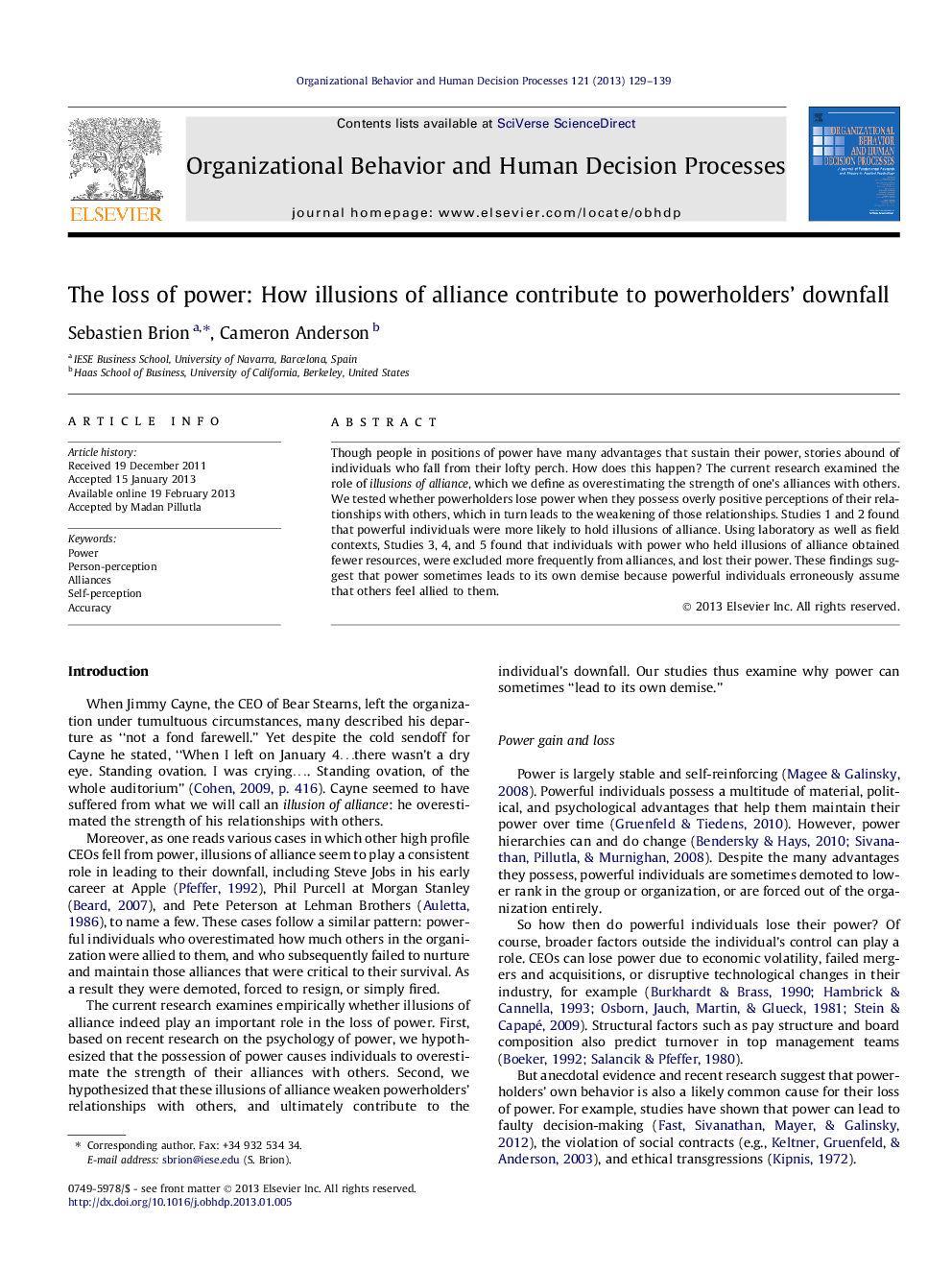| Article ID | Journal | Published Year | Pages | File Type |
|---|---|---|---|---|
| 888638 | Organizational Behavior and Human Decision Processes | 2013 | 11 Pages |
Though people in positions of power have many advantages that sustain their power, stories abound of individuals who fall from their lofty perch. How does this happen? The current research examined the role of illusions of alliance, which we define as overestimating the strength of one’s alliances with others. We tested whether powerholders lose power when they possess overly positive perceptions of their relationships with others, which in turn leads to the weakening of those relationships. Studies 1 and 2 found that powerful individuals were more likely to hold illusions of alliance. Using laboratory as well as field contexts, Studies 3, 4, and 5 found that individuals with power who held illusions of alliance obtained fewer resources, were excluded more frequently from alliances, and lost their power. These findings suggest that power sometimes leads to its own demise because powerful individuals erroneously assume that others feel allied to them.
► We examine the biased perceptions that contribute to power loss among the powerful. ► Lab and field studies examine the impact of illusions of alliance on power loss. ► The powerful overestimated the strength of their alliances with others. ► Illusions of alliance led to the loss of resources, and exclusion from alliances. ► Powerholders lose power to the extent that they overestimate their alliances.
